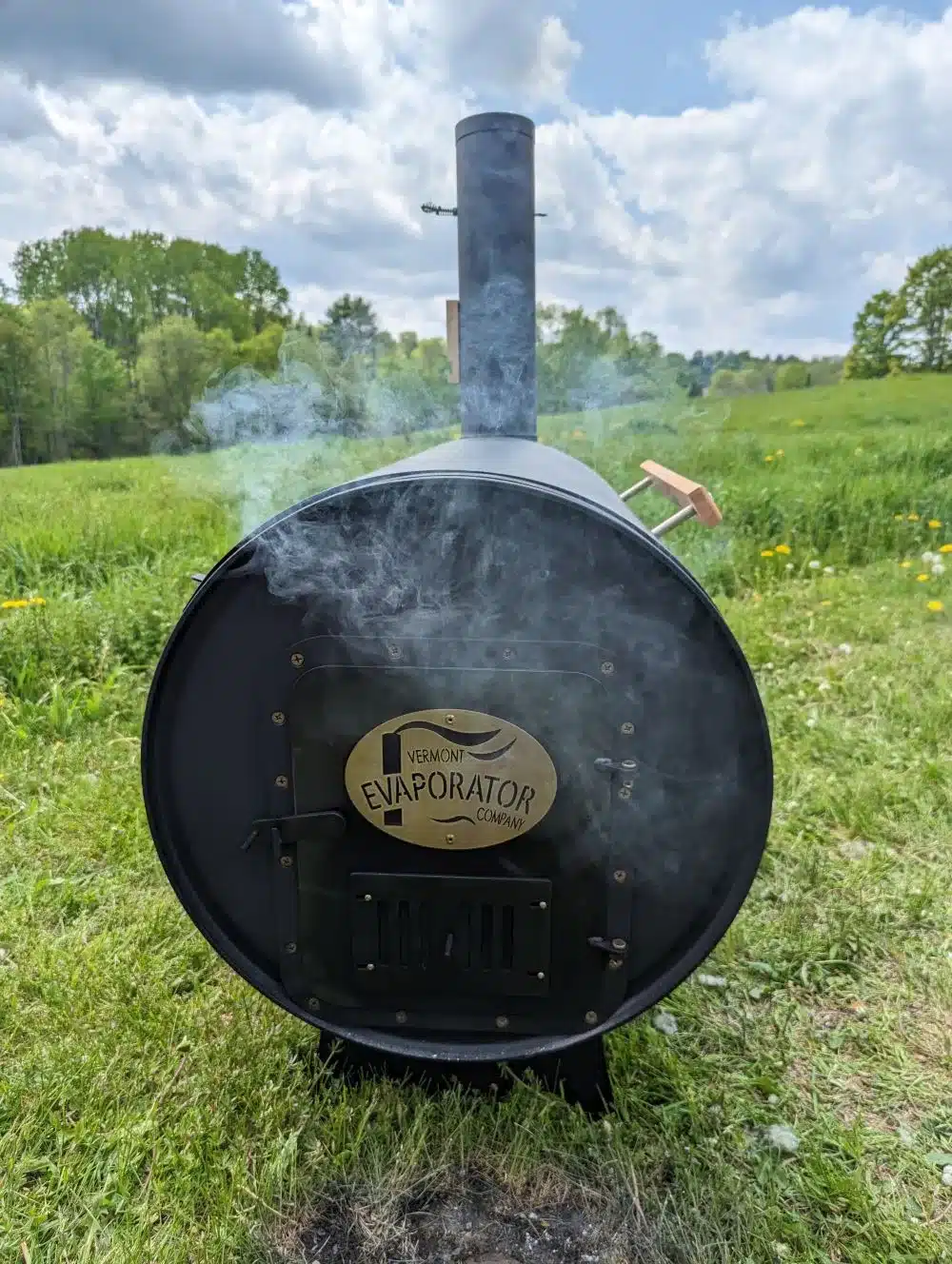Recently, we were lucky enough to spend the day dry rub smoking on the Sapling Everything Grill with Mark Lawler, a specialty food maker, founder of Vermont’s own & Maple, and all-around good guy. Mark makes a no salt dry rub for pork and chicken for & Maple that’s out of this world. He starts by cold smoking organic granulated maple sugar, dark borwn sugar and golden sugar with apple wood and then blends it with smoked paprika, sweet Hungarian paprika, New Mexican chili, garlic, onion, mustard, rosemary, ginger, and black pepper. In Mark’s words, the mix creates “a unique dry rub that’s smokey and sweet, with a little bit of heat.” In the words of my teenage children, who had Mark’s smoked, dry-rubbed spare ribs for dinner that night, “I can’t believe how good this is,” and “this rub is bussin’!”
Courtesy of Mark, here are some recipes and techniques for dry rub smoking on the Sapling that you and your people are sure to enjoy (even the teens)!
Smoked, Dry-Rubbed Spare Ribs
First, Mark and I set up the Sapling for smoking according to instructions. That is to say, we made a small fire using char logs underneath the efficiency baffle at the front of the unit, closed the front grates and the damper to minimize air intake, and waited. We allowed the barrel to heat up, and then cool down to about 300 degrees.
Then, Mark got the spare ribs – aka St. Louis ribs – and took them out of the package. He dried the ribs with paper towls, and removed the excess fat, including the silver skin (that thin strip of fat on the back of a rack of ribs, shown below).
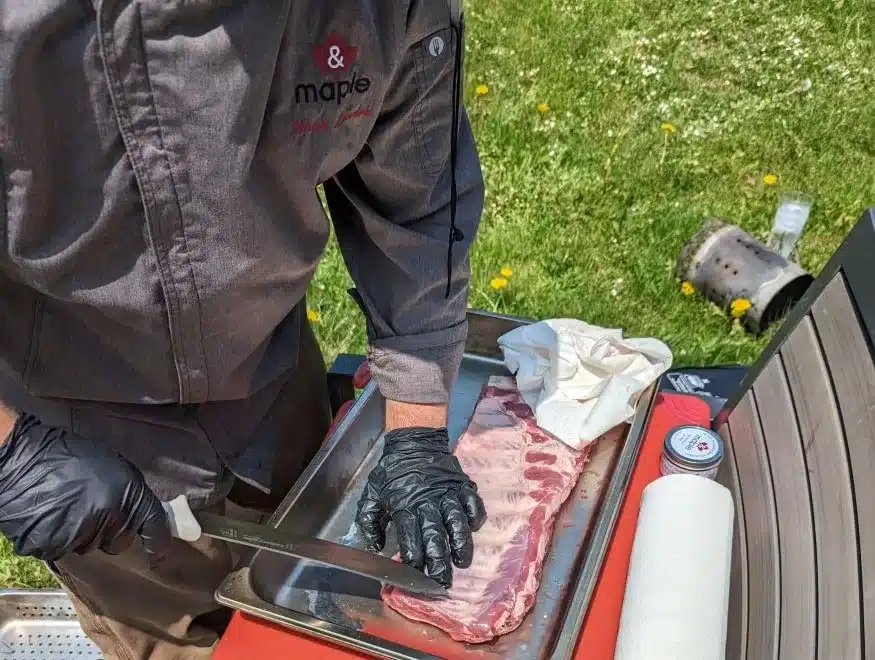
Next, he sprinkeld liberal amounts of kosher salt on both sides of the rack of ribs, rubbed it in, and grabbed his & Maple dry rub.
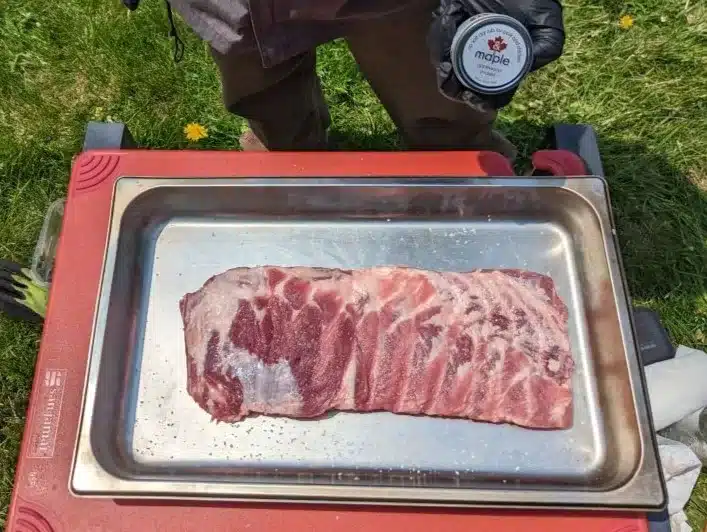
He opened the tin of rub and shook it over both sides of the rack of ribs, rubbing the mixture into the rack as he went.
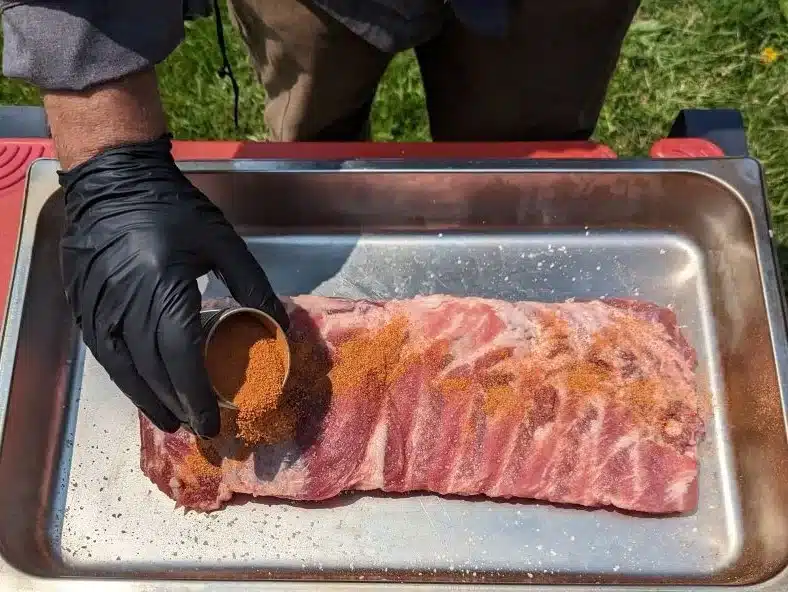
Once the ribs were completely covered in the rub, he put a thermometer into the meat. Mark owns a bunch of meat thermometers. (And, I mean, a BUNCH.) But his favorite is by Meater. It’s digital, measures both the food temperature and ambient temperature, and communicates directly with your phone with more information than you ever thought possible. I noticed that it also looks elegant and comes with a wooden holder that can magnetically adhere to your smoker. Pretty nice.
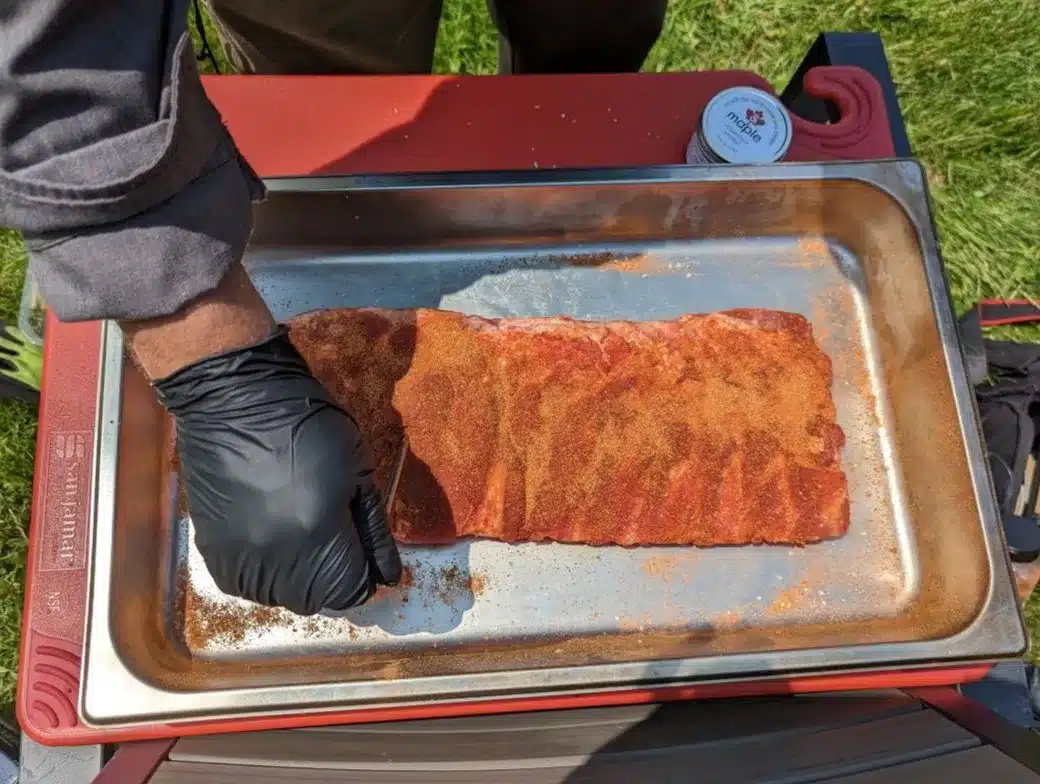
Mark let the ribs cook for about 1 hour and 40 minutes, at which point the ribs were 203 degrees. He says you should let ribs rest for at least an hour before eating, to let the juices . . . juice. But we obviously couldn’t wait at all, ate half of them right away, and have no regrets. They were incredibly good.
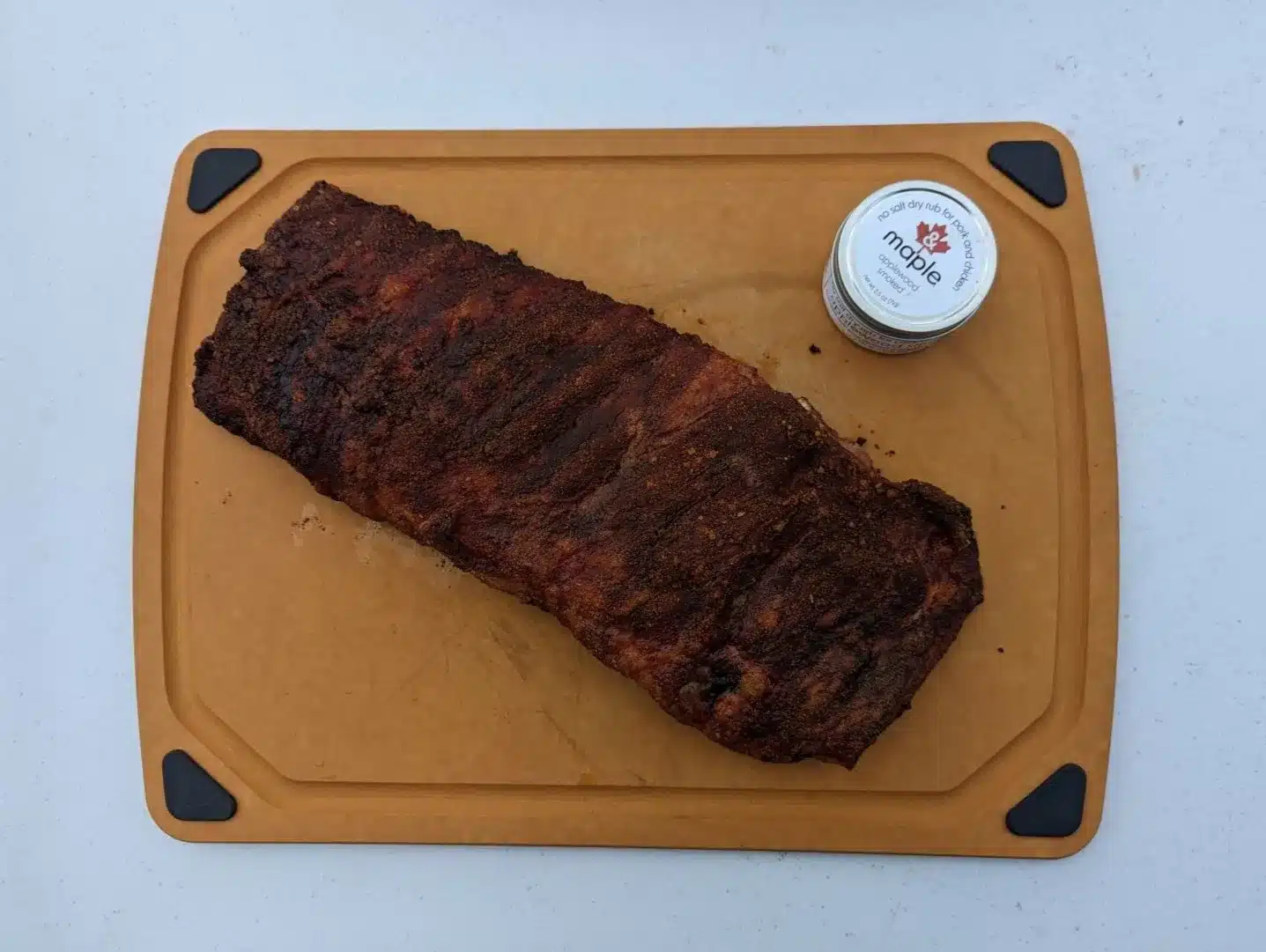
Next, Mark showed me a technique called the Texas crutch. To employ the Texas crutch, when you pull your ribs off the smoker (ideally at more like 180 degrees) you double wrap them in aluminum foil with 1/4 to 1/2 of a cup of apple juice or cola. Then you wrap that package in a towel and put it in a cooler for an hour, where the ribs cook in their own heat and juices until you’re ready to eat them. Those are the ribs my kids got.
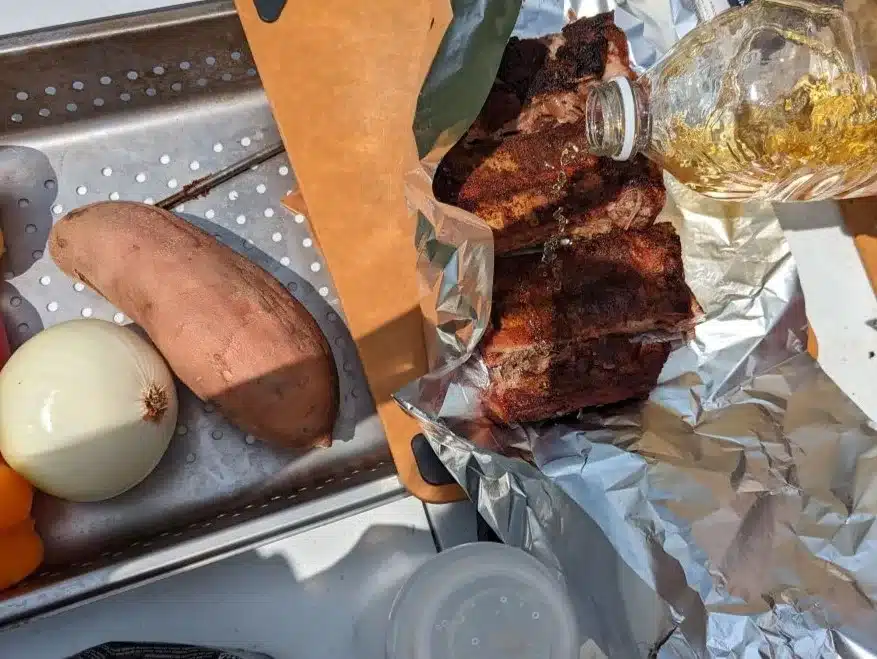
Then, Mark gave me some pointers for dry rub smoking on the Sapling with chicken and vegetables.
Smoked, Dry Rubbed Chicken and Vegetables
- Remove excess fat from bone-in chicken breasts, leaving skin on, and prepare the same way you prepared the ribs (dry with paper towel, kosher salt, dry rub).
- Remove the ends from a white onion and slice in half. Slice sweet potatoes and red, yellow and/or orange bell peppers the long way. Spray with olive oil, and rub in kosher salt and dry rub.
- Place in smoker and cook until internal temperature of the chicken is 170 degrees and the veggies are tender. (On a 250-ish degree Sapling this will take 2 hours).
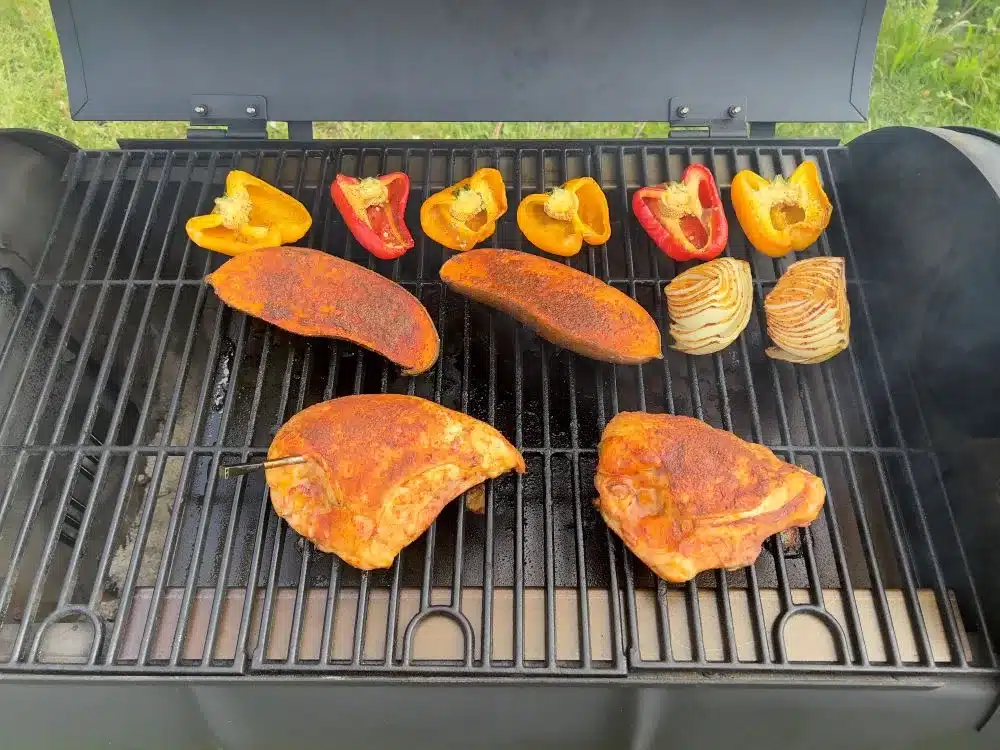
Tips on Smoking Low & Slow on the Sapling Everything Grill
Mark enjoyed smoking on the Sapling so much we left it at his house to play around with. He’s discovered a way to smoke even slower and lower than we did when we were together, and continues to mess around for the perfect smoke! He found he was able to keep the heat lower for longer by making the char log fire in the back of the unit and allowing the fire to “snake” forward by means of a curvy line of char logs running the length of the barrel. Next, Mark’s going to experiment by flipping the efficiency baffle upside down and setting it on top of the fire itself to simulate a fire box. We’ll let you know how it all goes! Until then, keep seeking the slow and enjoy your food! (If you’d like to enjoy your food more, pick up a tin of No Salt Dry Rub for Pork and Chicken at & Maple today!)
